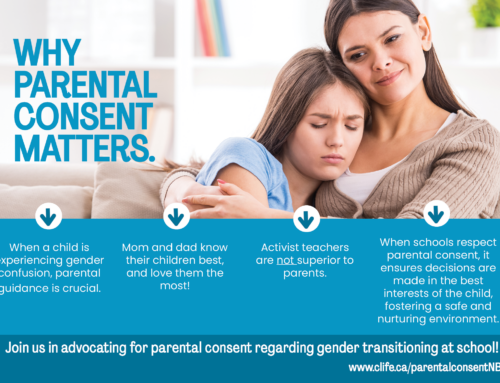
Donald Trump won the presidency on Nov. 9. Pro-lifers are watching to see if he fulfills his promise to appoint anti-Roe v. Wade judges.
Against the odds and perhaps even the expectations of the Trump campaign (if friendly media reports are to be believed), real estate tycoon Donald Trump was elected the 45th president of the United States. Despite making controversial statements and having a sordid personal history – thrice married, numerous affairs, admissions of sexual assault, mocking people with disabilities, swearing in press conferences – and mixed messages on social issues, Trump was the standard-bearer for American pro-lifers and the Religious Right. And it helped him ascend the pinnacle of American politics.
Donald Trump’s social conservative credentials are certainly questionable. He has in the past donated to Planned Parenthood and defended partial-birth abortion. He has pointedly refused to answer questions of whether he pressed or paid for abortions with past mistresses. He is the first president to enter office supporting same-sex “marriage.” And yet, he won over social conservative voters.
During the campaign Trump had a few missteps, including saying women who have abortions when the procedure is recriminalized should face jail. Many U.S. pro-life leaders condemned him for taking the position and he recanted and said punishments should be limited to health care professionals who carry out the procedure. However, he supported the Pain-Capable Unborn Child Protection Act which would outlaw abortion after 20 weeks. He said he would defund Planned Parenthood and last fall supported shutting down the government over Washington’s payments to the abortion giant (although he later muddied those waters when he said he would allow taxpayer funding of PP as long as the money didn’t go to abortion).
It certainly helped that his opponent, Democrat and feminist Hillary Clinton vowed to expand abortion in America, promising to fight for increased access and funding to both abortion and contraception and scrapping the Hyde Amendment which restricts federal funding of abortion. Long gone was the Clintonian rhetoric of the 1990s when Bill Clinton said abortion should be safe, legal, and rare; the rare portion of that line was dropped. Hillary Clinton also vowed to appoint only Supreme Court justices that supported Roe v. Wade, the 1973 decision that opened the door to abortion-on-demand across the country. In recent years, supreme court appointments have been contentious affairs precisely because of the issue of abortion. And indeed, the death of pro-life justice Antonin Scalia in February may have been the pivotal moment of this campaign.
Senate Majority Leader Mitch McConnell (R, Kentucky) refused to hold hearings on President Barack Obama’s appointment to replace the late justice, Merrick Garland, thus ensuring a central issue of the campaign would be the balance on the court. Currently, there is usually a four-four split on issues, so control of the court was important to activists on both the Left and the Right.
Trump repeatedly said he would appoint pro-life judges and took the unprecedented step of releasing a list of 21 judges, academics, and lawyers which would comprise the roster from which he would choose Scalia’s replacement. Most of the people on the list are pro-life and all of them resist judicial activism. Perhaps the best candidate is Judge William H. Pryor Jr. from the 11th Circuit Court in Atlanta, who was on George W. Bush’s shortlist for the court a decade ago. As a former Alabama attorney general, Pryor called Roe vs. Wade the “worst abomination in the history of constitutional law.”
After the election, Trump went on 60 Minutes, during which he reiterated he will appoint pro-life judges: “I’m pro-life. The judges will be pro-life.” Trump acknowledged that if the court overturned Roe it would simply mean that the abortion issue would return to the states and that some would allow it, others would restrict the procedure, and others ban abortion outright. He also said that this was far off.
Trump can appoint a new justice as soon as he’s president (assuming Barack Obama does not attempt a temporary “recess appointment” for one year), but considering the previous court with Scalia did not overturn Roe, that possibility might be another justice or two away from becoming a reality. He will almost certainly have more opportunities to do so with three current justices aged 83, 80, and 78. A 2006 Harvard Journal of Law and Public Policy study reported that since 1971, the average age of retirement for a Supreme Court justice has been 78.7.
According to a Republican source, internal polling and the party’s own exit polls indicate that for self-described conservatives voting for Trump, the two most important issues were abortion and Supreme Court appointments. Public exit polls did not ask about abortion, but the NBC News Exit Poll of voters found that 22 per cent of all voters said the makeup of the next court was the most important issue and another 48 per cent said it was an important issue. In 2008, just seven per cent said it was the most important issue while 47 per cent said it was an important issue. More Trump voters than Clinton supporters cited the court as the most important issue (27 per cent compared to 19).
Trump won the election by increasing Republican voting tendencies among those groups who already favoured the party. Trump won 58 per cent of Protestants, slightly higher than Mitt Romney in 2012 and John McCain in 2008. He also garnered a record 81 per cent among white born-again/evangelical Christians and recaptured the old Reagan Democrats by winning 60 per cent of the white Catholic vote. Those who went to church weekly voted favoured Trump 56 per cent compared to Clinton’s 40 per cent. It was more evenly split among those who attend service less regularly, and Clinton handily won those who never attend church (62 per cent to 31).
Richard Land, president of Southern Evangelical Seminary, said “evangelicals were motivated to vote in unprecedented numbers because of Hillary Clinton’s record on abortion.” Tony Perkins, president of the Family Research Council, said evangelicals “were mobilized by what’s at stake (and) the clear contrast (with) Hillary on life.”
Whether pro-lifers can trust the man who ran on the pro-life platform even though he said in 1999 that he was “very pro-choice,” only time will tell. So far there is not much to go on.
In the weeks after the election, Trump seemed to reverse course on a number of issues. But on important files to pro-life Americans, Trump delivered, including appointing pro-lifers to the job of Attorney General (Senator Jeff Sessions) and UN ambassador (South Carolina Governor Nikki Haley). Most American pro-life leaders say the first real test is appointing Scalia’s replacement. If the polling is correct, it will be more than the movement’s leaders who are upset if Trump does not follow through on his promise.






